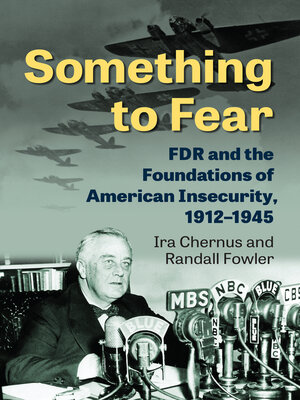
Sign up to save your library
With an OverDrive account, you can save your favorite libraries for at-a-glance information about availability. Find out more about OverDrive accounts.
Find this title in Libby, the library reading app by OverDrive.



Search for a digital library with this title
Title found at these libraries:
| Library Name | Distance |
|---|---|
| Loading... |
A presidency unlike any other, Franklin D. Roosevelt's legacy in foreign affairs has been contested since the day of his passing. Few presidential statements have echoed through history like FDR's charge to conquer "fear itself." Yet immediately after the end of World War II, the United States was gripped by a pervasive sense of national insecurity.
In Something to Fear, Ira Chernus and Randall Fowler demonstrate that Roosevelt's rhetoric, vision, and policies promoted a broadly defined sense of American security over a period of thirty-three years, ultimately helping elevate security to its primacy in US political discourse by the end of his presidency. In doing so, however, he also heightened the prominence of insecurity in American public life, mediating the United States' transition to superpower status in a way that also elevated fear in debates over foreign affairs.
FDR's presidency precipitated a complex shift in US foreign policy that defies any straightforward account organized along a linear isolationist-to-interventionist trajectory. Chernus and Fowler investigate the uncertainties and contradictions embedded in FDR's presidential rhetoric, which drew from realist, racial, progressive, nostalgic, apocalyptic, liberal internationalist, and American exceptionalist discourses. In this way, Roosevelt's rhetoric anticipated the ambivalences contained in American adventures abroad ever since.
Something to Fear shows how FDR's response to the Great Depression, the debates over intervention, and World War II left an immense rhetorical legacy that often stressed insecurity. This study of FDR's entire political career also carefully links him to the Progressive Era before his presidency and to the Cold War era after it.







